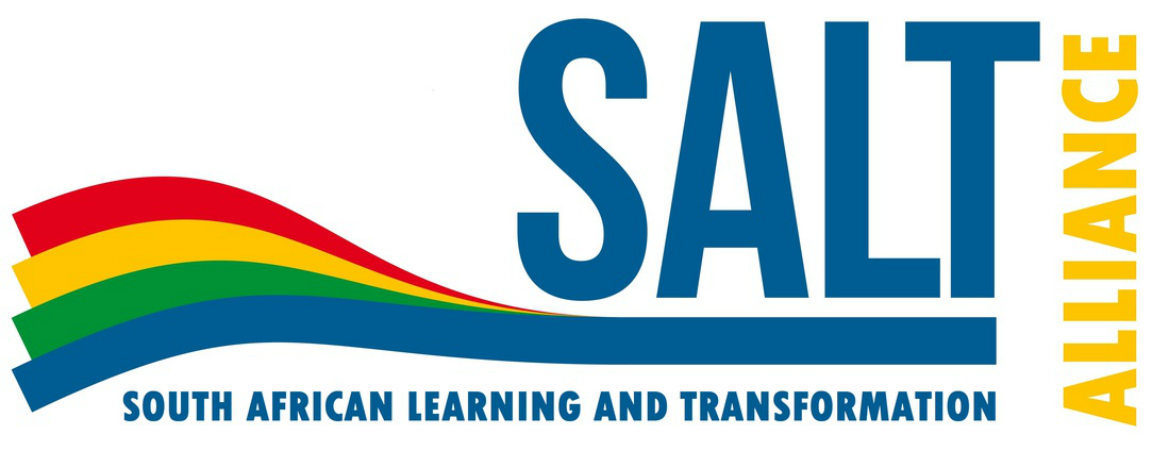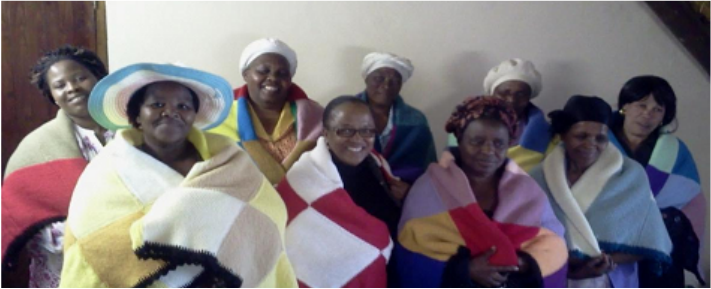|
Zoe Gwala, of TWR-SA, shares: “My mother actually started it! One day we were chatting about Umyezane, a group that she heads up. ‘Zoe, so many widows!’ she commented. Of course, as I work on the women’s programme at Trans World Radio South Africa, I asked her a bit more about the group, and discovered that there were 150 widows who met once a month. I was shocked at the number of widows in this very small community in rural KwaZulu-Natal and pressed her for more details.”
Umyezane is a group of widows who support each other through prayer, food parcels, skills and encouraging each other to stand up and do something in their community that can help other widows too. Zoe was curious about the need for this group in such a small community, so she visited Molweni and spoke to the Umyezane ladies. What she learnt prompted her to find out more about the reality of widowhood in other villages too. The term “widow” is a name assigned to any woman whose husband has died. In the Zulu culture, widowhood entails a reposition within society. Both cultural practices relating to widowhood and cultural views on widowhood serve to create an entirely new identity, role and position for the widow within her community and broader society. Culturally, when a woman marries, she becomes part of the husband’s family. When he dies, his possessions revert back to his family and not to his widow and children. And all major decisions revert back to the family, including burial arrangements and inheritances. Society expects that the costs of the death and burial be carried by the widow; in cases where the deceased was working, it is assumed that the widow has money. Death expenses are not limited to the funeral. For example, a widow is expected to erect a tombstone for her husband one year after his death, at a cost of up to R6000. Sometimes this is done without any financial assistance from her dead husband’s family. Cultural beliefs state that the soul of her husband will haunt her otherwise. Practically, the widow is physically isolated, with people avoiding her after the burial. One widow shared “...after the burial you don’t see a single church member coming to visit. You are left in a very, very lonely situation”. Many widows confided that this isolation was the most torturous experience they have ever gone through. Widowed women are also not allowed to talk to their neighbour’s husbands. Previously close friendships have to be pushed to a certain distance because of the change in marital state: phone calls must be shortened, the widow may no longer visit in her neighbour’s homes, or spend extended time with her married friends. Further research showed that in the five communities Zoe visited in KwaZulu-Natal, including Molweni, 80% of widows are unemployed, are age 36 or older and have been widowed for more than 6 years. These women support on average three to five children each, as well as their immediate family and, very often, five or six grandchildren too. Widows in South Africa currently do not receive any financial support from government but have to apply for disability grants or old age pensions when they reach the required age. There is minimal family or community support for widows in terms of their practical needs, let alone their social or psychological needs. This affects children tremendously. Reacting to the loss of their fathers, 20% of the children of widowed women in the five villages we interviewed end up dropping out of school. Beyond the everyday challenges of raising children in an unstable environment, these mothers struggle to maintain discipline and respect. A high percentage of children engage in destructive behaviour like verbal abuse, acting out, using drugs and alcohol, joining gangs, crime and teenage promiscuity. Why are there so many widows in just five communities? TWR-SA learnt that the majority of husbands (68%) died because of medical reasons (illness, heart attacks or disease), 14% through accidents and 18% through murder/witchcraft. Many women shared how their husbands had been sick for a long time but refused to go for treatment, fearing stigma or shaming by the community and elders. Death and the dead are a topic that are not easily discussed by the Zulu. People are hesitant to address and confront cultural practices. Yet, as the TWR-SA team walked dusty roads and met with these often-stigmatised and ignored women, again and again they poured out their stories. Whilst researching the reality of widowhood was the focus of Zoe’s research, the result of meeting with widows was actually healing. Zoe shares: “It was amazing to see the release of emotion as widows were at last recognised, listened to and affirmed by our visits. In this holy space, many women requested prayer, found a new peace and, with rekindled hope, committed their lives to follow Jesus.” ---- Article written by Kerry Feldman, SALT Alliance, in collaboration with Zoe Gwala. Research conducted by Z. Gwala and D.Du Preez, TransWorld Radio South Africa. Note: Zoe Gwala heads up the women’s programmes for TWR-SA. She is married to Petros, has two children aged 9 and 4, and has been involved in mentoring, church leadership and women’s outreach in the Valley of a Thousand Hills for more than 10 years now. As a result of the research in the Kwanyuswa, Molweni, Shongweni, Inchanga and Mbumbulu communities (representative as a random sample of villages in KwaZulu-Natal, South Africa), TWR-SA started developing a coordinated response to the needs of widows: 1. Support groups have been started in each of the communities, helping widows to encourage and support each other, get organised, start food gardens to feed their families and find employment through basic skills training opportunities. 2. Widows were identified who were suffering and required immediate support: a monthly food parcel is now delivered to each home to alleviate hunger. 3. Workshops that address loss, grief and trauma have been developed and are available to widows within their communities. 4. TWR-SA has developed radio programmes that are broadcast to local communities: these broadcasts share the obstacles that widows face, encourage widows to start self-employment opportunities, address the issues of self-esteem/loss, and challenge communities/churches to care for their widows.
1 Comment
|
SALT Alliance NewsStories from the field Archives
November 2020
Categories |


 RSS Feed
RSS Feed